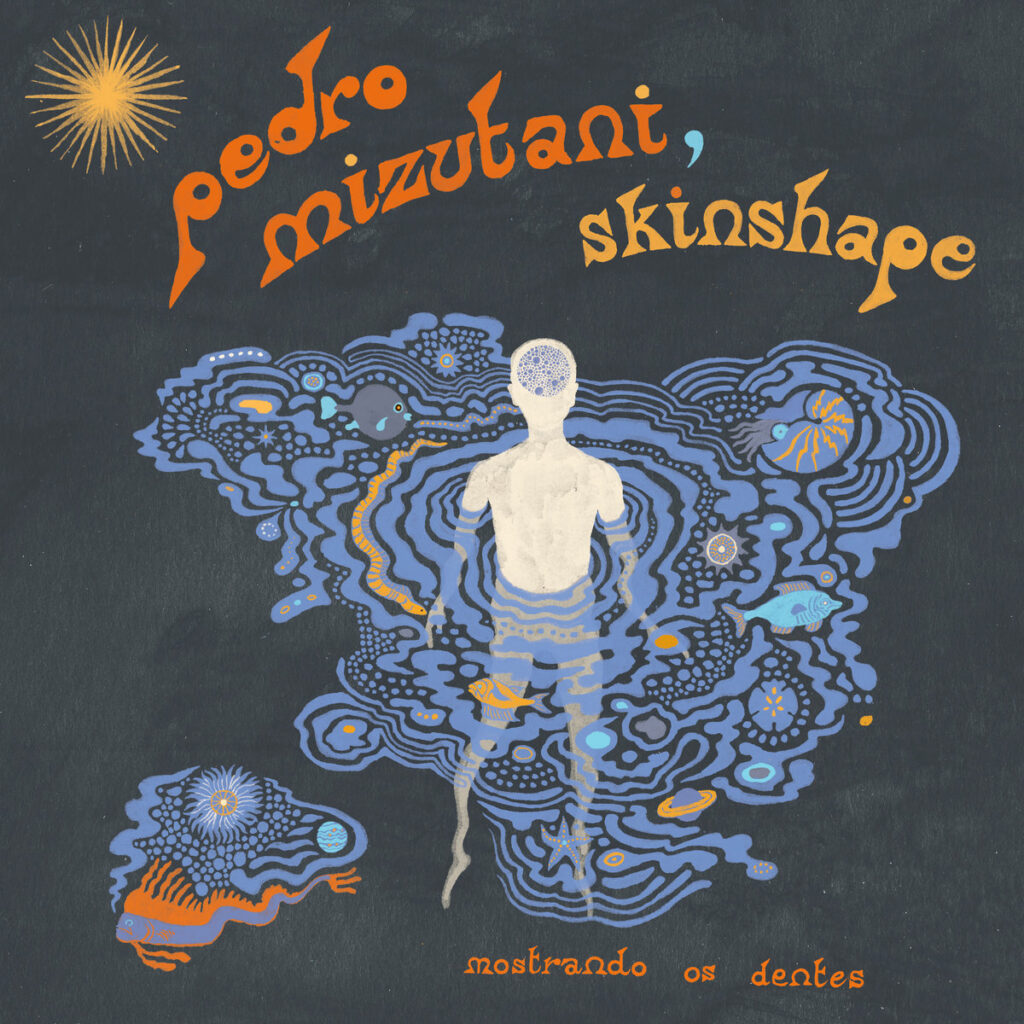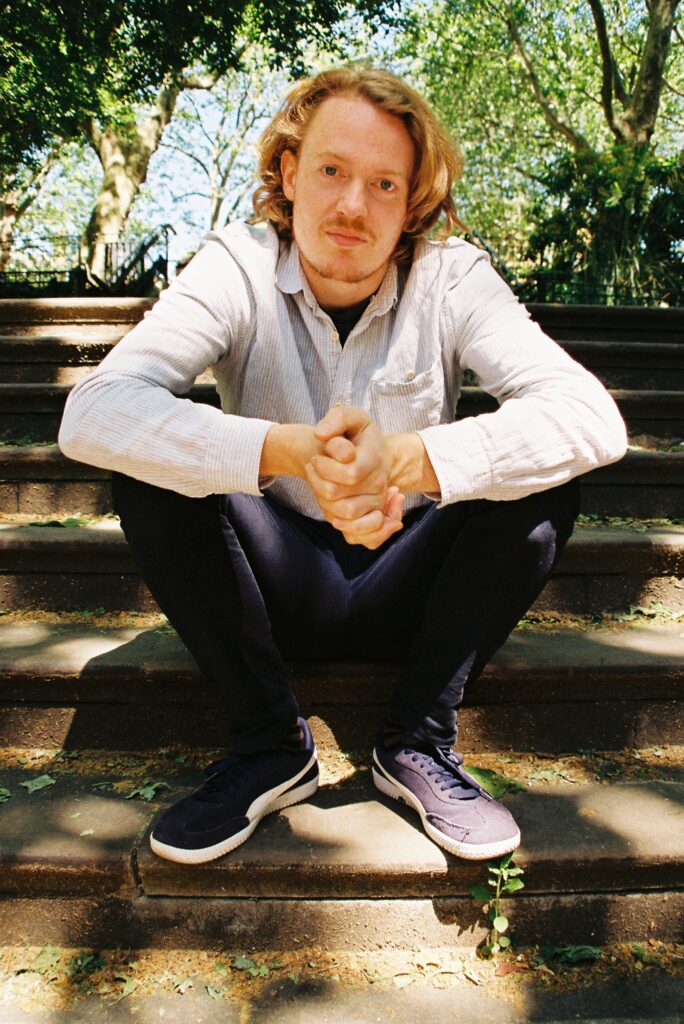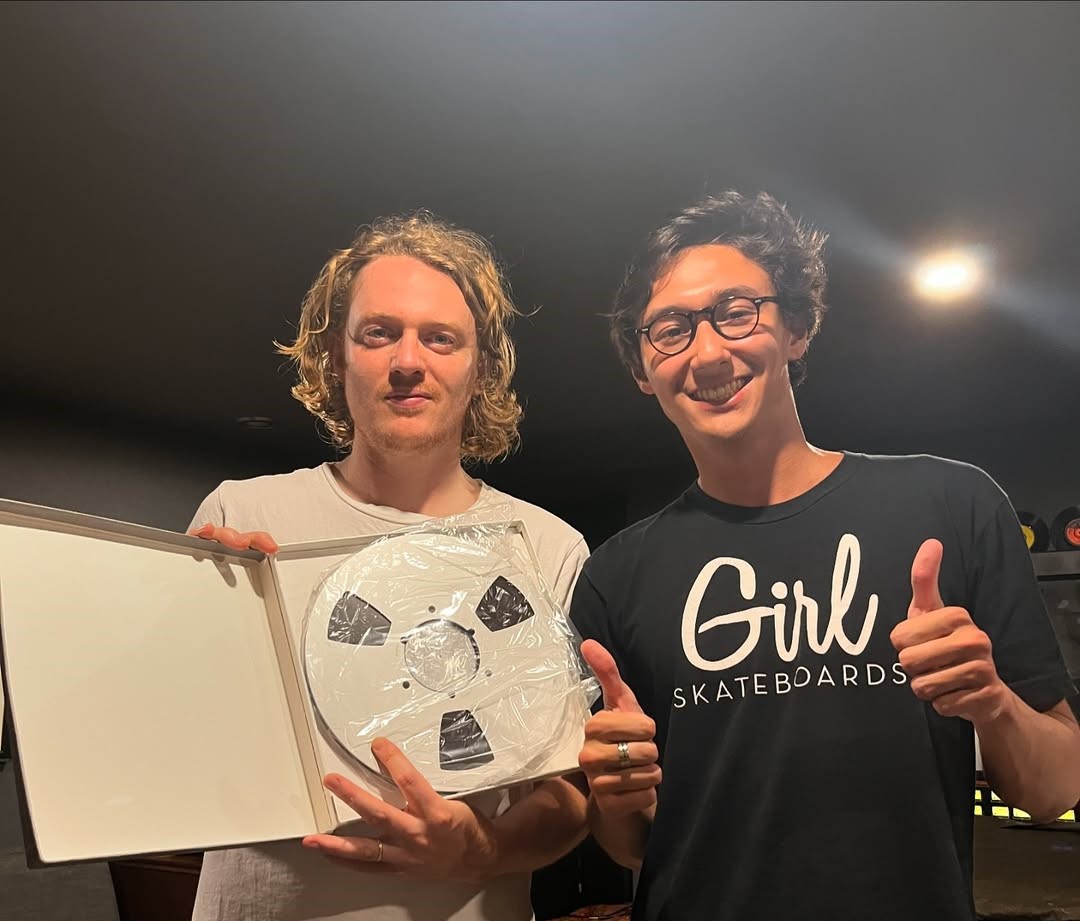Pedro Mizutani & Skinshape: ‘Criaturas da Noite’ Blends Bossa Dreams with British Haze
When London producer Skinshape met Brazilian songwriter Pedro Mizutani, something clicked.
It was not in the grand, showy sense, but in the way two puzzle pieces quietly find their match. Their debut single ‘Criaturas da Noite’ is the first taste of ‘Mostrando os Dentes, and it’s a masterclass in subtle magnetism. Think: dusty bossa nova melodies that sway like palm shadows at midnight, paired with glistening British reverb textures that give it all a foggy glow. Mizutani’s voice glides gently through the track like a memory you can’t shake, while Skinshape keeps things grounded with understated groove and perfectly placed atmospherics. It’s music that breathes.
Pedro brings the emotional nuance of São Paulo’s poetry, and Skinshape brings his obsession with tone, space, and feel. Together they’ve forged something entirely their own. Call it bossa-pop, call it global soul, or just call it essential listening.

“I guess we work on songs that have this minimalistic, pop, introspective, dreamlike vibe”
The blend of Brazilian bossa nova with Skinshape’s British sound creates something really unique. Can you talk a bit about how your musical backgrounds influenced the final sound of ‘Criaturas da Noite’? Was there any intentional push or pull between your two styles?
Pedro Mizutani: I guess bossa nova is kind of the foundation of my songwriting, as it is for the MPB in my opinion. Even though it is a big reference for me, I have never really deepened myself into the technical aspects of it. I don’t know, I wouldn’t call my songs bossa nova, I just bring a few aesthetic characteristics of the style that I inherited by osmosis. For ‘Criaturas da Noite,’ I first intended to make a little pop Brazilian northeast-influenced song, about trying to forget a past lover in the Rio nightlife, but I don’t think it turned out to show a lot of this influence. As me and Will started to work on the track at his studio, I had a certain vision for the bass, percussions and keys. But these ideas of mine, they are very broad and aren’t necessarily suited for the gear Will has, so we adapt. Will is very attentive to my view of the songs, but at the same time, as we start to record the different instruments and ideas, things start flowing and the track starts to have its own identity.
Pedro, your voice has this airy, almost hypnotic quality that seems to float effortlessly through the song. How do you approach the vocal recording process? Do you like to experiment with different takes, or is it more about capturing that perfect first moment of inspiration?
Pedro: Thank you very much for the words. Well, I don’t really have an issue making different takes, usually it takes a few actually. But I don’t like to obsessively work on the vocals trying to get to a perfection level. I really enjoy the emotion and the spontaneity of a take, really enjoy keeping some little “mistakes” as a charm.
Will, you’ve worked with a wide range of genres, from lo-fi to reggae, but this is a particularly smooth collaboration. Was there something about Pedro’s musicality that made you want to dive deeper into the world of bossa nova and MPB?
Will Dorey: I heard one of Pedro’s songs on Spotify a few years ago and I really liked it. So I reached out to his label to see if we could collaborate. Pedro was up for it, and the rest was very easy and natural. I like all kinds of music, and I liked the idea of working on some bossa style music. I’ve done songs in Portuguese before on one of my earlier albums (Umoja) but the vibe was more afrobeat rather than bossa.
The chemistry between you two seems almost immediate, as if it was meant to happen. When you first met, did you have a clear vision of what this collaboration might look like, or was it more organic and spontaneous?
Pedro: I liked his songs since we started exchanging emails, but I had no idea on which direction we would go when it came to producing my songs, since they have pretty different vibes. So, at least from my end, everything was super organic and spontaneous. We just got in the studio, started checking out the instruments available and discussing ideas.
The song feels light and breezy, yet there’s a subtle tension running through the basslines and production choices. How did you balance creating that sense of effortless joy with some of the deeper, almost melancholic undertones of the song? Was it more about finding a common thread between bossa nova and the more British sound that Skinshape is known for, or did you start from scratch with the intention to push boundaries?
Pedro: Honestly, I don’t know. As I said before, we just start trying different ideas and testing stuff. I guess we work on songs that have this minimalistic, pop, introspective, dreamlike vibe, and when it comes to production we are kind of looking to elevate these characteristics of the composition. There was no other conscious strategy on the creative process, at least nothing verbalized between us.
Will: I wouldn’t say that I think there is a tension in the bass lines or production choices, and it’s hard to say where the creation of any balance comes from. These are things that just happened very naturally. In the recording process we knew what we liked and what we didn’t like, so as we experimented with ideas and sounds, the recording and production developed almost without effort. The melancholy is also a natural element of my music, and I think Pedro could also say the same with his songs.
How much of ‘Criaturas da Noite’ is inspired by your personal experiences growing up in Brazil, and how much of it draws from the current moment in music or life in general?
Pedro: This song is inspired by personal experiences and also by what I see in a lot of people around me. Getting stuck in the bohemian nightlife circle to cope with the lack of something. In my case, a romantic loss.
Will, your use of space in production is remarkable. Can you walk us through your approach to adding atmospheric touches like the shimmering bells and reverbs in this track? How do you decide when to pull back and let the music breathe, and when to layer more in?
Will: I think in any producer’s studio, the goal is to surround yourself with musical instruments and equipment that you enjoy using. That means that when you start playing around with song ideas you can try things and quickly discover what works and what doesn’t. I love reverb, and for this particular project I used a Boss RX-100 unit and recorded it on all the microphones for whatever we were recording. All vocals, guitars, glockenspiel, pretty much everything. Especially it sounds cool on the drum machine I have, which is an old Maestro. You can hear that on Sozin—there’s a regular “click” sound that runs through the song and has a nice reverb sound.
The relationship between lyrics and melody in this song feels very fluid, almost like an extension of the guitar work itself. Was there a conscious effort to make sure that both elements, melody and rhythm, felt equally prominent, or did it naturally evolve that way?
Pedro: Many times I write the guitar chords, vocal melody and lyrics simultaneously. It’s just the way I like to do things sometimes, building it brick by brick in a linear way.
When you think about your upcoming LP, ‘Mostrando os Dentes,’ what kind of journey can listeners expect? Will the songs evolve from this first single, or do you explore new themes and sounds on the full album?
Pedro: In my view, each track of this project has its own little world. Of course there’s a lot of cohesion in terms of the mixing, the choice of instruments and the core aesthetic of the compositions, but I feel like they have very different dynamics from each other.

Would love it if you could share some further words about its creation.
Pedro: In this project the compositions are more nuanced and the lyrics are as introspective as the ones on the previous collaboration, but more mature and deep in a way. ‘Mostrando os Dentes’ has the undertone of a repressed anger, disguised in the smooth melodies and instrumentation. It means “showing the teeth,” which can be seen as a threat from a more animalistic perspective, but in social reality it’s the act of pretending to smile. I guess that’s authentic to my personality, someone who feels very deeply but is not able to externalize half of it in social relations—the “real” world.
Also, having more time to work on the tracks was awesome. It makes things a little neater.
Klemen Breznikar
Skinshape Facebook / Instagram / X / Bandcamp / YouTube
Pedro Mizutani Instagram / Bandcamp / YouTube
Nice Guys Records Instagram / Bandcamp




